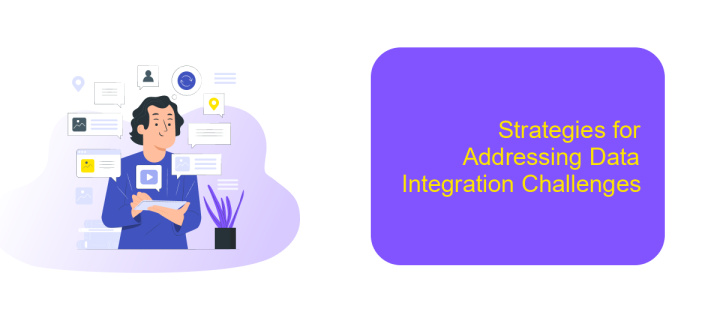Challenges in Data Integration
Data integration is a critical process in modern data management, enabling organizations to consolidate information from diverse sources into a unified view. However, this process is fraught with challenges such as data inconsistency, differing data formats, and scalability issues. Addressing these challenges is essential for ensuring data accuracy, improving decision-making, and gaining valuable insights from integrated datasets.
Challenges in Data Integration
Data integration is a critical process in modern data management, yet it faces numerous challenges that can hinder its effectiveness. Integrating data from disparate sources often leads to issues such as data inconsistency, redundancy, and quality degradation. These challenges can complicate decision-making processes and reduce the overall value of the integrated data.
- Data Heterogeneity: Different data formats and structures make it difficult to achieve seamless integration.
- Data Quality: Inconsistent, incomplete, or inaccurate data can compromise the reliability of the integrated dataset.
- Scalability: As data volumes grow, maintaining performance and efficiency becomes increasingly challenging.
- Security and Privacy: Ensuring data protection while integrating sensitive information is a significant concern.
- Semantic Integration: Aligning different data semantics to provide a unified view is complex and time-consuming.
Addressing these challenges requires a combination of advanced technologies, robust methodologies, and collaborative efforts among stakeholders. By leveraging machine learning, data governance frameworks, and standardized protocols, organizations can enhance the effectiveness of their data integration processes and unlock greater value from their data assets.
Causes of Data Integration Challenges

Data integration challenges often stem from the heterogeneity of data sources. Organizations frequently deal with diverse systems, each with its own data formats, structures, and protocols. This disparity creates complexities in ensuring seamless data flow and consistency. Additionally, legacy systems, which may not support modern integration methods, further complicate the process. These outdated systems often lack the flexibility and compatibility required for efficient data integration, leading to increased time and resource expenditure.
Another significant cause of data integration challenges is the lack of standardized protocols and governance. Without uniform data standards, integrating data from various sources can result in inconsistencies and errors. Moreover, inadequate data governance policies can lead to security vulnerabilities and compliance issues. Tools like ApiX-Drive can mitigate some of these challenges by providing a platform that simplifies the integration process, offering automated workflows and compatibility with multiple data sources. By leveraging such services, organizations can enhance their data integration efforts, ensuring more reliable and efficient outcomes.
Consequences of Data Integration Challenges

Data integration challenges can have significant repercussions on an organization’s efficiency and decision-making capabilities. When data from various sources cannot be seamlessly integrated, it leads to fragmented information that hampers a holistic view of business operations. This fragmentation can result in inconsistent data, making it difficult for stakeholders to derive accurate insights and make informed decisions.
- Increased operational costs due to redundant data management efforts.
- Decreased data quality and reliability, leading to poor decision-making.
- Delayed project timelines as teams struggle to reconcile disparate data sources.
- Reduced customer satisfaction due to inconsistent and inaccurate information.
- Compliance risks arising from the inability to maintain comprehensive and accurate records.
Addressing these challenges is crucial for organizations aiming to leverage their data assets effectively. By implementing robust data integration solutions, businesses can ensure data consistency, improve operational efficiency, and enhance the accuracy of their analytics. Ultimately, overcoming data integration challenges is essential for maintaining a competitive edge in today’s data-driven landscape.
Strategies for Addressing Data Integration Challenges

Addressing data integration challenges requires a multifaceted approach, combining technological solutions with strategic planning. One of the primary steps is to ensure data consistency across diverse sources, which involves standardizing data formats and establishing common data definitions. This facilitates seamless data merging and minimizes discrepancies.
Another critical aspect is the implementation of robust data governance frameworks. These frameworks define clear policies and procedures for data management, ensuring data quality, security, and compliance. Effective governance helps in maintaining the integrity of integrated data and prevents potential issues arising from data mismanagement.
- Adopt scalable data integration tools that can handle large volumes of data.
- Implement data validation and cleansing processes to ensure data accuracy.
- Utilize data transformation techniques to harmonize data from different sources.
- Establish a centralized data repository for unified data access.
- Invest in training and development for staff to manage data integration effectively.
Finally, fostering collaboration between IT and business teams is essential for successful data integration. By aligning technical capabilities with business objectives, organizations can ensure that integrated data serves its intended purpose, driving informed decision-making and operational efficiency.
Conclusion
In conclusion, data integration remains a complex yet essential aspect of modern business operations. The challenges associated with integrating disparate data sources, ensuring data quality, and maintaining data security require comprehensive strategies and robust tools. Organizations must invest in scalable solutions and continuous monitoring to address these challenges effectively.
Services like ApiX-Drive offer valuable assistance in streamlining data integration processes. By providing automated workflows and seamless connectivity between various applications, ApiX-Drive helps businesses minimize manual efforts and reduce errors. Leveraging such platforms can significantly enhance data integration efficiency, allowing organizations to focus on deriving actionable insights from their integrated data. As the landscape of data continues to evolve, adopting innovative tools and practices will be crucial for staying competitive and achieving long-term success.
FAQ
What are the common challenges in data integration?
How can data inconsistency be addressed in data integration processes?
What role does data quality play in successful data integration?
How can automation help in data integration?
What are the best practices for securing data during integration?
Do you want to achieve your goals in business, career and life faster and better? Do it with ApiX-Drive – a tool that will remove a significant part of the routine from workflows and free up additional time to achieve your goals. Test the capabilities of Apix-Drive for free – see for yourself the effectiveness of the tool.

